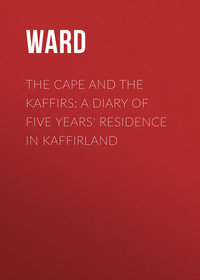The Cape and the Kaffirs: A Diary of Five Years' Residence in Kaffirland

Полная версия
Добавить В библиотекуАвторизуйтесь, чтобы добавить
Добавить отзывДобавить цитату
The Cape and the Kaffirs: A Diary of Five Years' Residence in Kaffirland
Авторизация